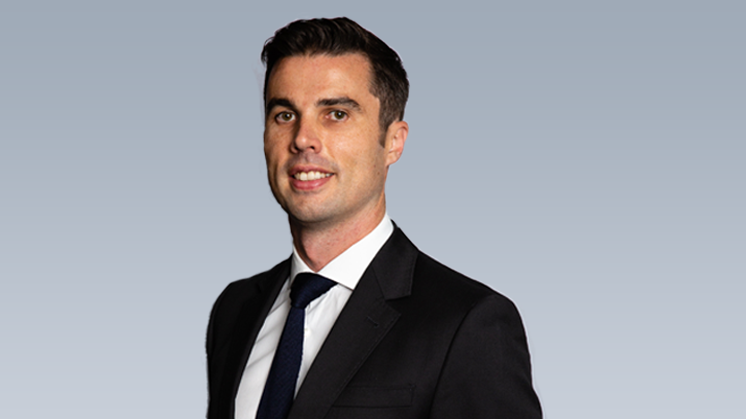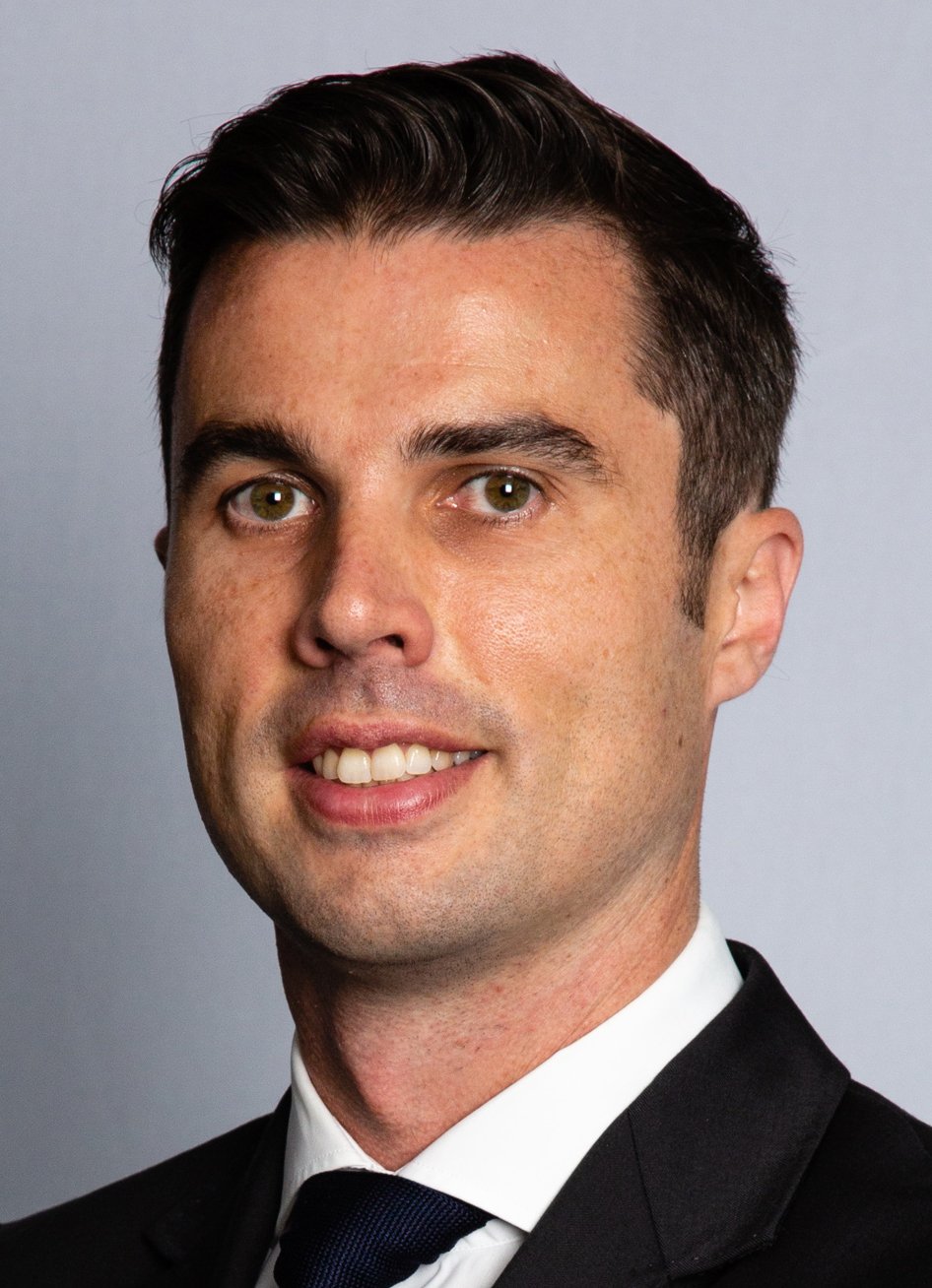
Michael Murphy is Portfolio Manager for the Perpetual Loan Fund, a portfolio of private and syndicated loans that forms a crucial component of the Perpetual Credit Income Trust (ASX: PCI). He was recently promoted to the role within the Credit and Fixed Income Team from his previous position as Senior High Yield Analyst. Michael will continue to advise the credit team on high yield and unrated corporate credit. Here he offers his impressions on the outlook, opportunities and risks in high yield credit.
It’s been an exciting start to 2023 following a very challenging year prior. How has the Perpetual Credit Income Trust navigated these conditions?
We’ve been very happy with the resilience of PCI over recent periods. Persistent high inflation and the ensuing aggressive tightening of monetary policy played havoc with fixed income markets during 2022. PCI’s floating-rate structure, defensive positioning and careful issuer selection mitigated the impact of tightening financial conditions, soaring yields and widening credit spreads. Rising interest rates also continue to improve the income paid on our floating rate investments.
While we are conscious that conditions remain challenging for corporate issuers, we are receiving much better compensation for taking on their debt than in prior years. The elevated volatility throughout 2022 and, most recently, in March are a stark reminder of the importance of risk management and prudent issuer selection. This discipline is even more essential the further down the credit spectrum you go into the high yield, unrated and private debt spaces.
To what extent was the collapse of a number of global banks disruptive for credit markets?
Spreads widened sharply and liquidity was severely impacted by the failure of SVB and later Credit Suisse. While we primarily focus on Australian issuers, our offshore bank exposures centre on large banking franchises which are systemically important in their domestic and/or global jurisdictions. This positioning was very beneficial, limiting the impact of spread widening. Similarly, our careful management of capital structure risk protected the Trust as hybrid spreads widened following the write down to 0 of Credit Suisse’s additional tier 1 capital notes. We typically hold very low exposure to bank hybrids reflecting valuation and capital structure concerns.
Have you seen impacts on the private loan market and has your deal pipeline been affected?
2022 saw significant market volatility and many non-bank lenders were constrained in their ability to commit to new deals. As a result, the market was very favourable to lenders, and we added a number of very attractive new private loan deals to the portfolio. As PCI is not a ‘private loan only’ fund, we can increase our exposure to private loans (as we did in 2022) to capitalise on periods when the risk/return is particularly attractive. The start of 2023 has been slow in terms of new issuance compared to prior years, but we expect activity to pick up in the second half of the year. I expect the market will be more balanced this year, not quite the lenders market we saw last year, but we should still see some attractive opportunities come up.
Where do you see the key opportunities with high yield?
We continue to target investing in high quality credits, focusing on large corporates with significant market shares, strong economic “moats” and high recurring revenues that are resilient to economic downturns. We have been through a benign period with historically low default rates, and this has rewarded funds taking on more risk. Going forward, we expect more challenging economic conditions and a pick-up in default rates, which is likely to differentiate funds that have focused on asset quality.
In the context of tightening financial conditions and slowing corporate earnings growth, how do you manage credit and default risks?
There is relatively little secondary trading of Australian private credit (compared to the US and Europe) so it’s important to think about how the credit is likely to perform in a range of challenging conditions before committing to the deal. We have seen a significant rise in interest rates and input costs in a short period of time and there is a fair risk of entering a recession in the next 12 months. When reviewing a new deal, we consider a number of factors including whether the company will be able to pass through cost increases, if earnings will be resilient in economic downturns and whether the company will still be able to comfortably service their debt if interest rates rise.
Can you give an example?
In 2021 when the RBA governor was saying he expected rates will stay low until ‘at least 2024’ our view was that the private credit market was getting too comfortable with the level of debt they were willing to lend to companies and many would find it challenging to service their debt if rates did rise significantly. As a result, we only added a few select deals to the portfolio in 2021. So, it has been a case of maintaining investment discipline in times when the private credit market has been running hot that has set the portfolio up well for the current challenging environment. To date, the loan fund hasn’t had any loan defaults or restructures and the current portfolio continues to perform well.
Are there sectors of concern or any that you are underweight/avoiding?
We have very little exposure to companies that have exposure to discretionary spending. We also have no exposure to property development, which is more dependent on economic cycles, and we’re mindful that many investors are already heavily weighted to the property sector with their own direct investments. We have also generally been underweight on healthcare. While the demand story for healthcare is positive, there are some subsegments where we think the competitive challenges are underappreciated, especially for Australian-based healthcare providers looking to expand rapidly overseas (in particular the US market). At the same time, investor demand is very strong for healthcare deals and lenders are willing to provide high levels of debt relatively cheaply. So, for most opportunities in this segment the risk/reward hasn’t really stacked up.
Give us a sense of what the day in the life of a credit portfolio manager looks like.
I usually start my day reading (broker reports, rating agency reports etc) and listening to podcasts (Livewire, Nab Morning Call, Macro Hive, The Macro Trading Floor) to get an update on what’s happening in markets and if there have been any developments that may impact the companies in my portfolio. We then have a morning team call where we discuss what we’re seeing in the market and any company-specific news. Depending on what the current priorities are, the rest of my day is usually taken up by sourcing/reviewing potential new investment opportunities, monitoring the existing portfolio or meeting with investors.
How did you get started in finance and what drew you to credit markets?
I tried a few things before moving into finance. I studied engineering in my undergraduate studies and had vocational work experience in an engineering office and also worked in economic consulting after completing my master’s in economics. In both cases I could see that I wasn’t as passionate as the people around me about the work that I was doing. I always had an interest in investing since high school when I would invest some of my savings in the equity market and enjoyed reading about companies and financial markets. I started to apply for finance/investing roles, and by coincidence ended up in credit. I secured a role at CBA in corporate loss given default modelling (on the banks corporate loan portfolio) as they liked my quantitative background. Over time I moved onto the investing side, focusing on private credit. To me it’s a really interesting space to work in. You’re mostly looking at private, unrated companies where the disclosures aren’t as comprehensive as for public companies. So, there’s a greater reliance on your own independent research to assess the quality of a company and the structure of the loans is typically quite bespoke so you have to understand how the risks of the company interact with the structure of the loan. I really enjoy that challenge and, if you do the work, you can unearth some great investment opportunities.
Away from work how to you like to spend your time?
Since I spend most of my week at my desk I like to get outside as much as I can in my spare time. I love to spend time in the ocean, either surfing or diving. My last diving trip was with a few friends to do a shipwreck dive on the Central Coast which was incredible. Football has been my main sport since I was a kid and I still try to play in a comp when I have the time.
Find out more about Perpetual's Credit Income Fund (PCI)

